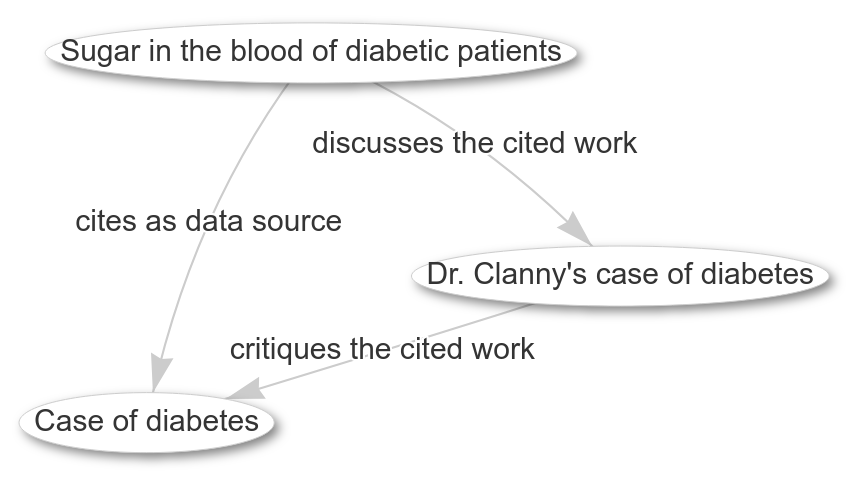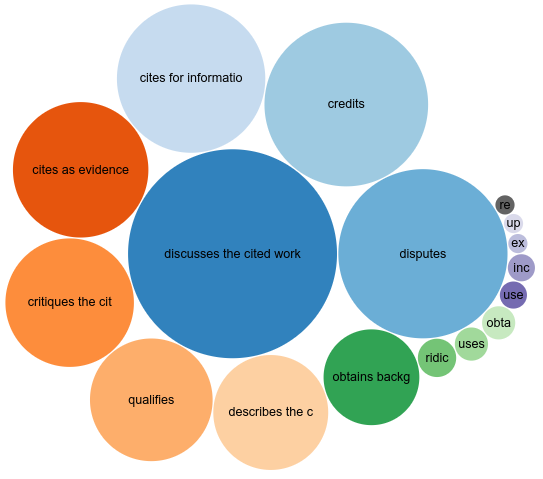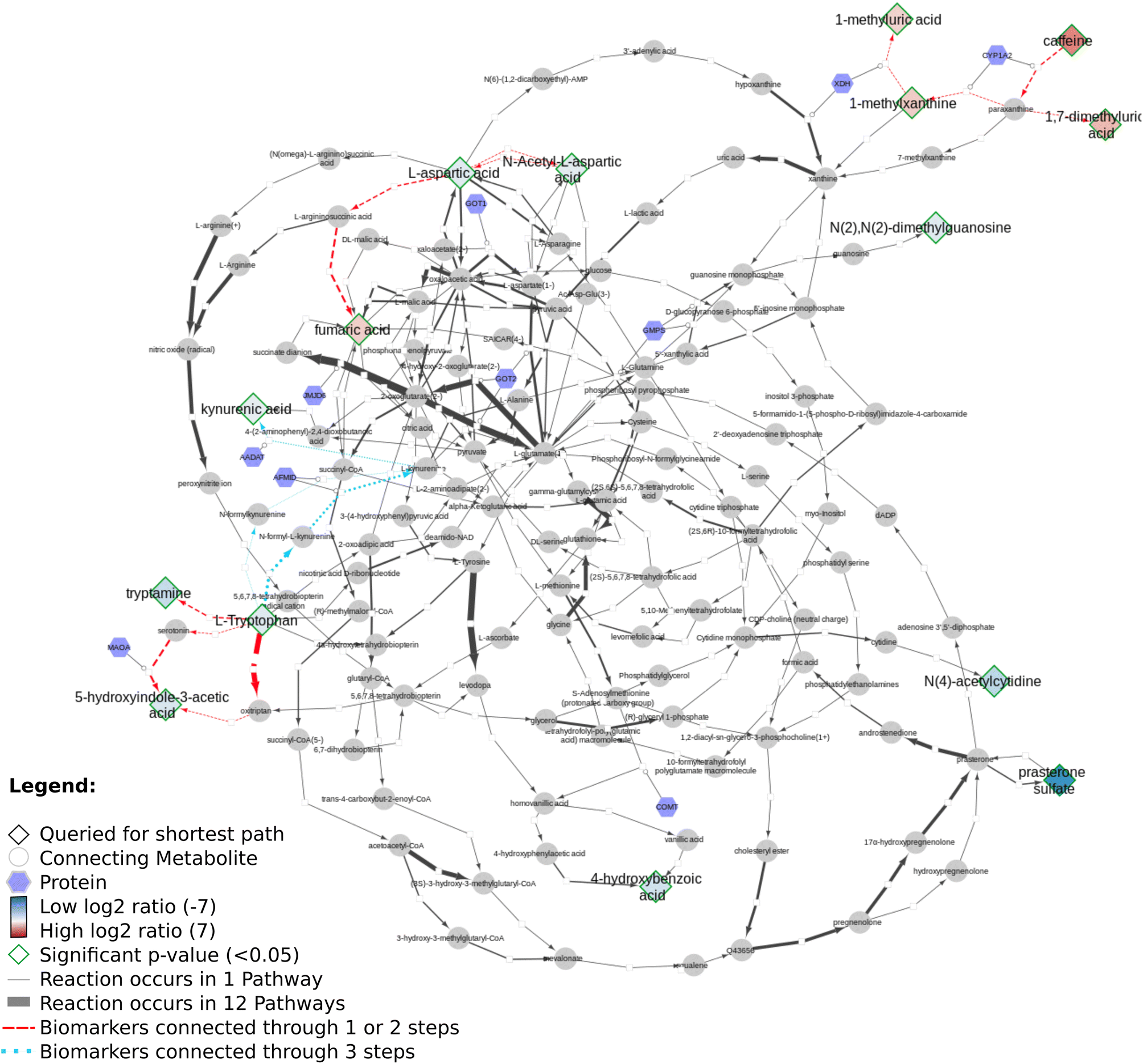-
Kasabi archive at the Internet Archive
Kasabi was an innovative RDF publishing platform from around 2011. Shortlived, and maybe just too early. I published two open datasets there. One was ChEMBL-RDF (see these posts). The second was a small data sets called ChemPedia, a open science effort to crowdsource chemical names. This is still very much needed, and possibly Wikidata could fill that gap, but it would first need to be able to handle all labels as statements itself. -

Scholarly discussions through the eyes of CiTO (and Wikidata)
Diabetes was already discussed in literature back in 1838-1839 (doi:10.1016/S0140-6736(02)96038-1, doi:10.1016/S0140-6736(02)96066-6, and doi:10.1016/S0140-6736(02)83966-6). These three papers show a short discussion. Papers were a lot shorter back in the days, and the discussion actually shows why papers are longer now (tho I am not sure they really got sufficiently more reproducible, but that’s another discussion). -

CiTO updates: Wakefield and WikiPathways
This summer I am trying to finish up some smaller projects that I did not have time for to finish, with mixed successes. I am combing this with a nice Dutch staycation, and I already cycled in Overijssel and in south-west Friesland and learning about their histories. But this post is about an update on my Citation Typing Ontology use cases. And I have to say, a mention by Silvio Peroni is pretty awesome, thanks! -

New paper: "Discovering life's directed metabolic (sub)paths to interpret human biochemical markers using the DSMN tool"
I am still catching up with a lot of work, and found out I actually had forgotten to blog about this cool article by Denise Slenter: “Discovering life’s directed metabolic (sub)paths to interpret human biochemical markers using the DSMN tool” (doi:10.1039/D3DD00069A). This paper explains how various open science resources (Wikidata, Reactome, WikiPathways) are used to visualize the biological story of the data from two metabolomics experiments archived in MetaboLights. -

GoatCounter, Rogue Scholar and more new things
About a year ago I started migrating my blogger.com blog to a git-version-controlled, Markdown-based blogging platform. I have to say, it has been a happy year. It actually is awesome to port old blog posts (follow that here) and to see what I have been working on some 17, 18 years ago. -

cdk2024 #3: an unexpected downstream project
In the CDK2024 grant we wrote about updating various software projects using the Chemistry Development Kit. We even wrote that “[r]equired API changes will be publicly shared and disseminated with the Groovy Cheminformatics with the Chemistry Development Kit book (egonw.github.io/cdkbook/)”. The Groovy Cheminformatics with the Chemistry Development Kit book is a project that has run since 2009. -
Two meetings: ELIXIR Toxicology and FAIR4ChemNL
Noting that in the coming week I am not attending the ELIXIR All Hands in Uppsala. Having lived in (and around) Uppsala for more than three years, I am disappointed and with the first stories from colleagues coming in even more. But it has been a way too busy year, I have much to finish up, and I need to take care of myself too. I am not 32 anymore.